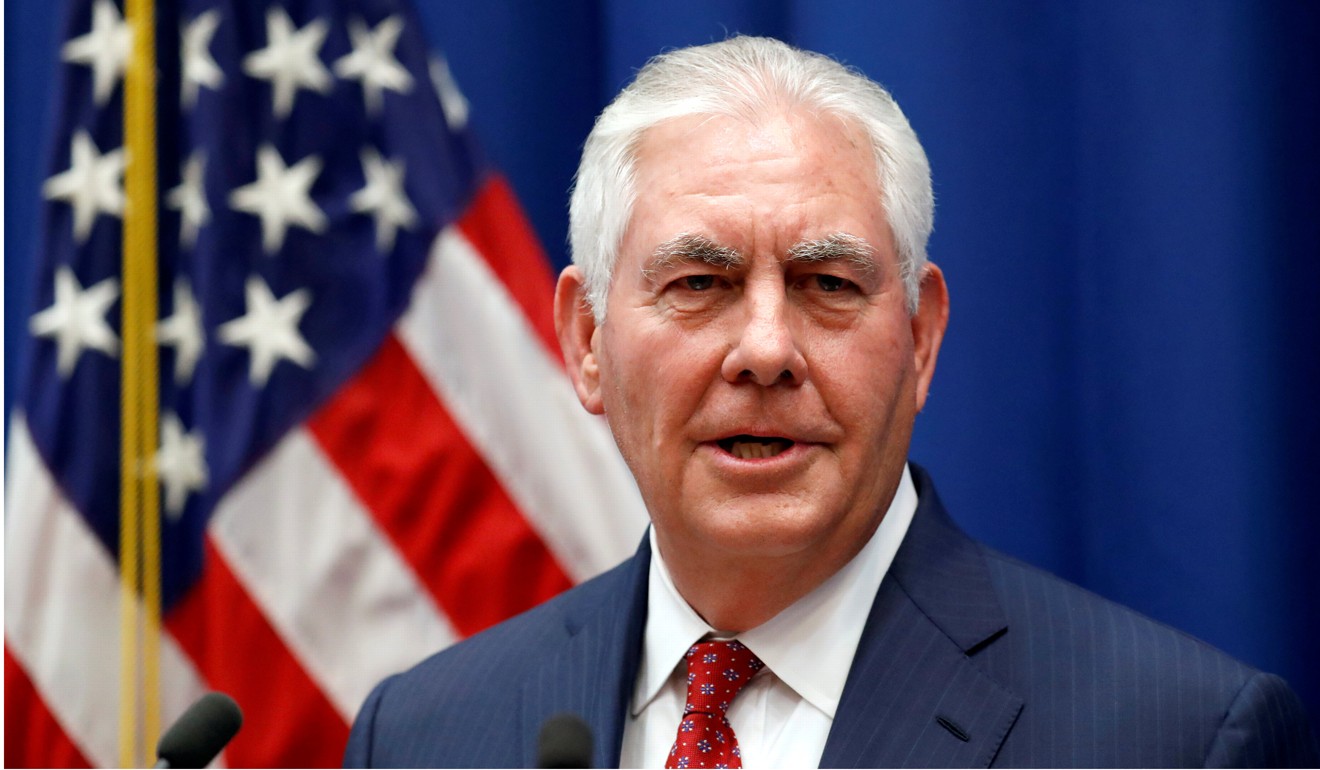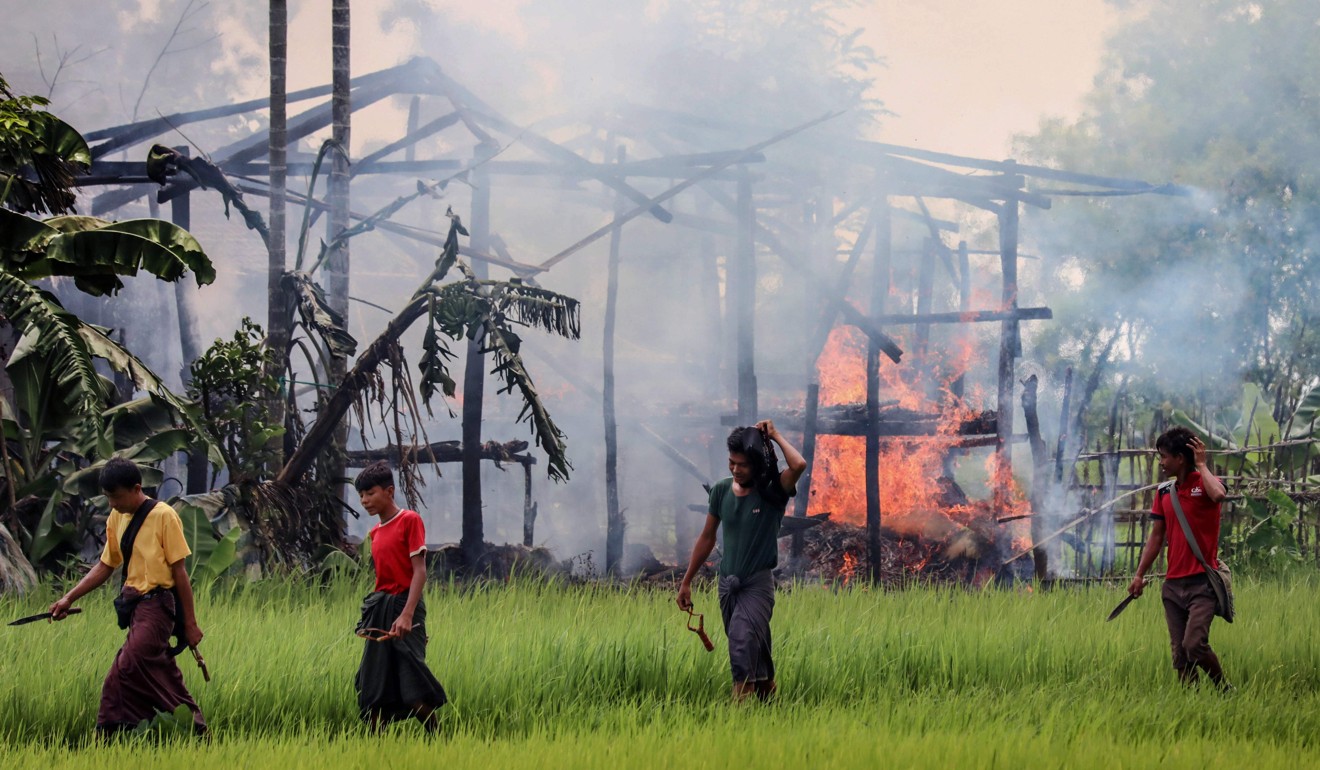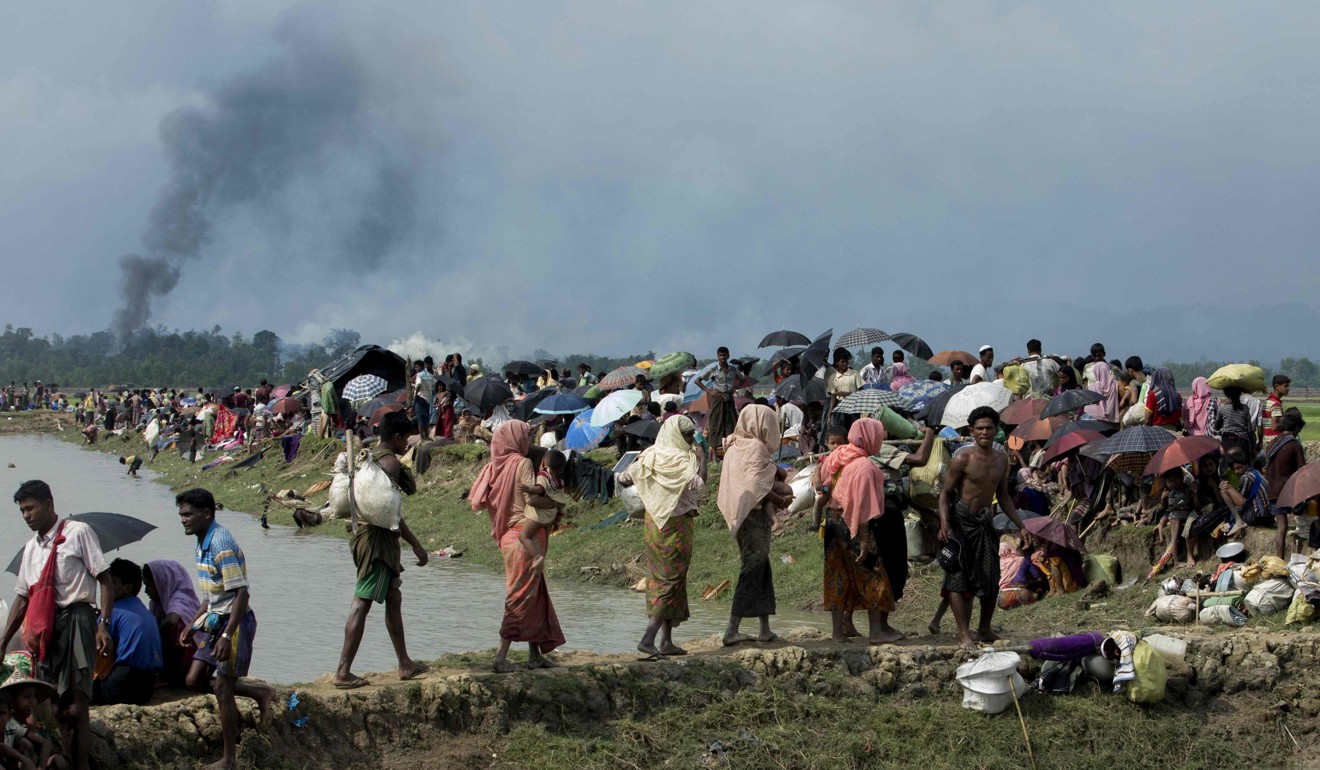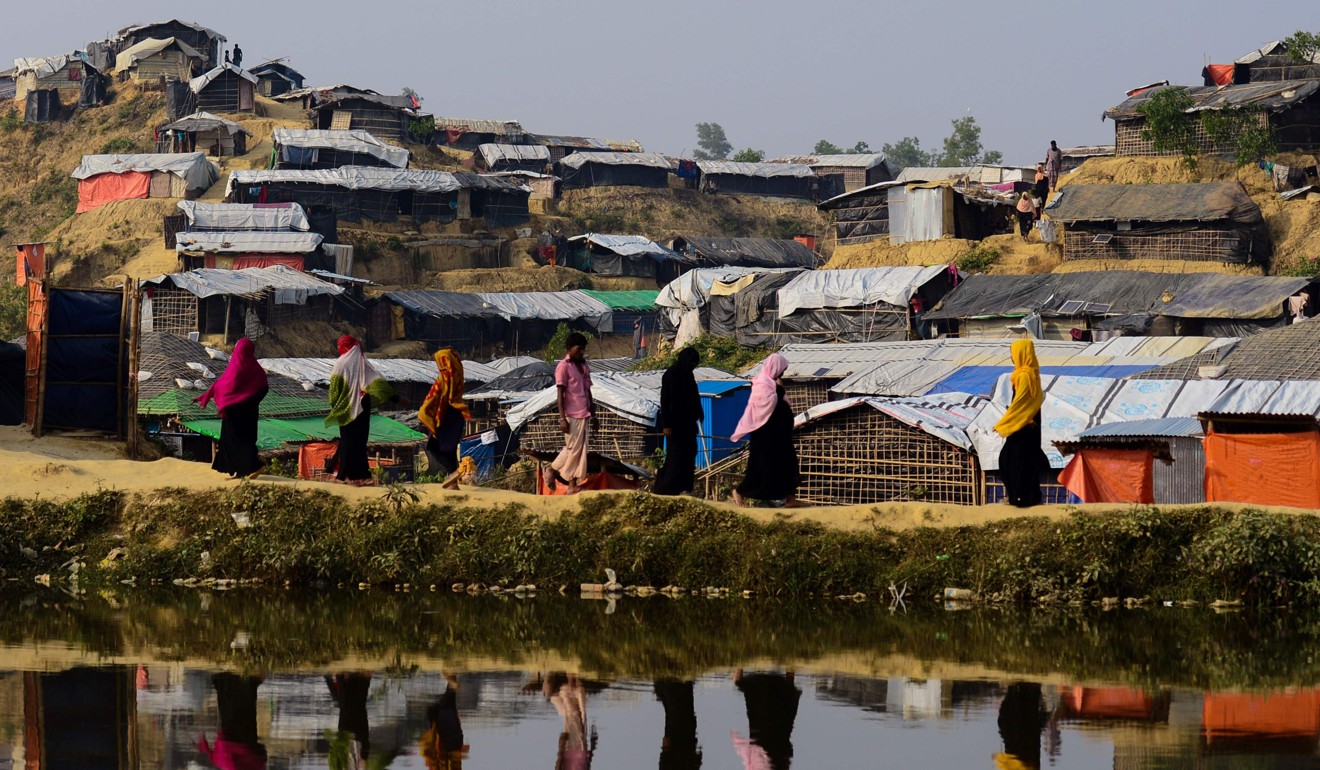
US: Myanmar’s Rohingya Muslim crisis is ‘ethnic cleansing’
The United States declared the ongoing violence against Rohingya Muslims in Myanmar to be “ethnic cleansing” on Wednesday, putting more pressure on the country’s military to halt a crackdown that has sent more than 600,000 refugees flooding over the border to Bangladesh.
Secretary of State Rex Tillerson blamed Myanmar’s security forces and “local vigilantes” for what he called “intolerable suffering” by the Rohingya. Although the military has blamed Rohingya insurgents for setting off the crisis, Tillerson said that “no provocation can justify the horrendous atrocities that have ensued”.
“After a careful and thorough analysis of available facts, it is clear that the situation in northern Rakhine state constitutes ethnic cleansing against the Rohingya,” Tillerson said in a statement.

Those who perpetrated the atrocities “must be held accountable,” Tillerson said. He added that the US wanted a full investigation and would seek justice “through US law, including possible targeted sanctions”.
The declaration followed a lengthy review process by the Trump administration to determine whether the alleged violence met the threshold to be considered ethnic cleansing.
Rohingya from Myanmar’s Rakhine state have been fleeing to Bangladesh, seeking refuge from what Myanmar’s military has called “clearance operations”. The crisis started in August, when Rohingya insurgents attacked Myanmar security forces, leading to a brutal crackdown in which soldiers and Buddhist mobs are accused of killing men, raping women and burning properties to force the Rohingya to leave.

Last week, Tillerson travelled to Myanmar in the highest level visit by a US official since President Donald Trump took office. US officials dangled the possibility of an “ethnic cleansing” designation before Tillerson’s trip, potentially giving him more leverage as he met Myanmar officials. In the capital of Naypitaw, Tillerson met the country’s civilian leader, Aung San Suu Kyi, well as the Myanmar’s powerful military chief, Min Aung Hlaing, who is in charge of operations in Rakhine state, home to Myanmar’s Rohingya population.
Sanctions on the Southeast Asian nation were eased under former president Barack Obama as the country made steps toward transitioning to democracy.

Pressure from Congress to take punitive steps against Myanmar has been mounting. Earlier this month, the House passed a non-binding resolution condemning “murderous ethnic cleansing and atrocities against civilians”. It called on Trump to impose sanctions on those responsible for human rights abuses, including members of Myanmar’s military and security services.
Tillerson, during his visit to Myanmar, said the US would consider targeted sanctions against individuals deemed responsible for the violence, but that he wasn’t advocating “broad-based economic sanctions” against the entire nation.

The State Department has also examined whether the violence in Rakhine meets the definitions for “crimes against humanity” or “genocide”, but have thus far made no such determinations.
According to the United Nations Office on Genocide Prevention, “ethnic cleansing” isn’t recognised as an independent crime under international law, unlike crimes against humanity and genocide. It surfaced in the context of the 1990s conflict in the former Yugoslavia, when a UN commission defined it as “rendering an area ethnically homogeneous by using force or intimidation to remove persons of given groups from the area”.

